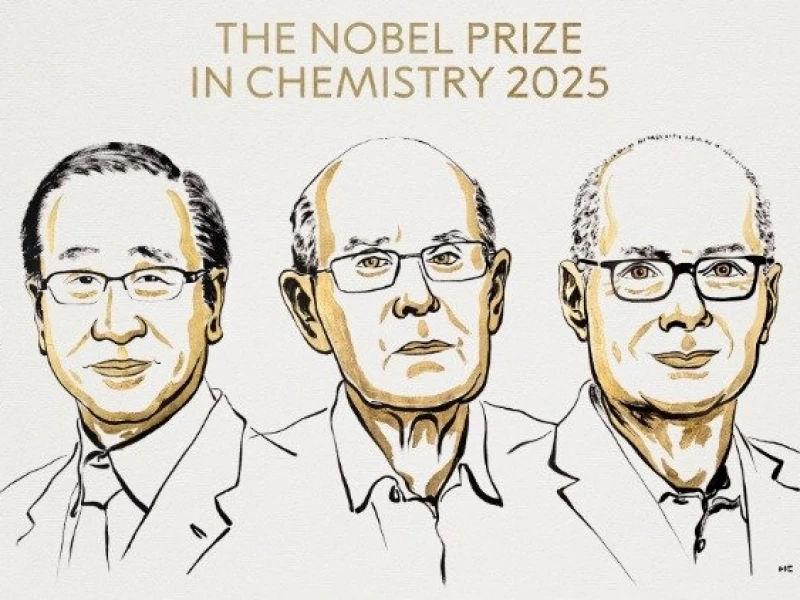Nobel Prize in Chemistry has been awarded to Susumu Kitagawa, Richard Robson, and Omar M. Yaghi for their pioneering work on metal-organic frameworks, the Royal Swedish Academy of Sciences announced at a news conference in Stockholm.
The three scientists will share prize money of 11 million Swedish kronor (£872,000). Their research focuses on the construction of molecules into intricate structures, which the Nobel Committee described as "molecular architecture".
Through their work, the scientists demonstrated how to build structures with large spaces between molecules, allowing gases and other chemicals to flow freely. These structures, known as metal-organic frameworks, have practical applications such as extracting water from desert air, capturing carbon dioxide, or storing toxic gases safely.
Professor Kitagawa is based at Kyoto University in Japan, Professor Robson works at the University of Melbourne, Australia, and Professor Yaghi is at the University of California, United States.
This marks the third major science Nobel announced this week. Earlier, the Physics Prize was awarded to John Clarke, Michel H. Devoret, and John M. Martinis for advances in quantum mechanics that laid the groundwork for quantum computing. Meanwhile, the Nobel Prize in Medicine went to three scientists for their discoveries regarding how the immune system combats infections.
In a lighthearted turn, one medicine laureate, Dr Fred Ramsdell, did not receive the news for 20 hours as he was on an off-grid hiking trip.
Last year, the Chemistry Prize was awarded to Demis Hassabis, John Jumper, and David Baker for their work on proteins, the fundamental building blocks of life.
#BBC


 Prev Post :
Prev Post :
